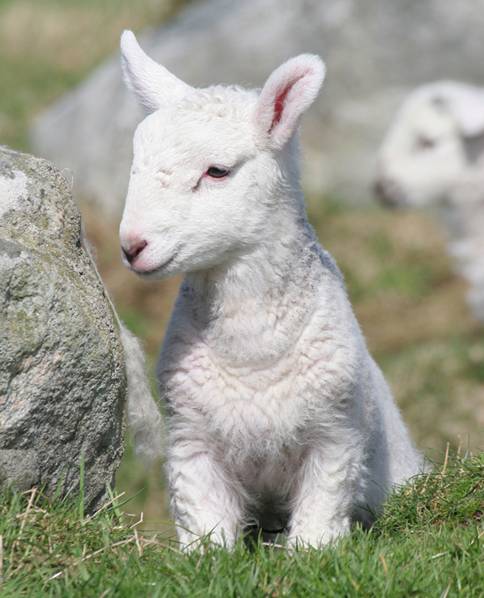A major outbreak of Q fever associated with goats has occurred in the Netherlands. Over 500 human cases have been reported since the beginning of 2008. Prior to 2007, the average number of cases per year in the country was only 15.

Q fever is an infection caused by the proteobacterial organism Coxiella burnetii. Although usually not very common, C. burnetii can be carried by sheep, goats, and cattle, as well as birds and even sometimes cats and dogs. Animals often show no signs of illness, although the infection sometimes causes miscarriage, particularly in sheep and goats. Coxiella burnetii is also transmissible to humans. People are much more susceptible than animals to disease from Q fever. Even so, only about 50% of individuals that become infected show signs of illness, which can range from flu-like symptoms to pneumonia and hepatitis (liver infection). About 1-2% of infections in people are fatal.
Infected animals shed C. burnetii in their stool, urine and milk, but the highest number of organisms are shed in birth fluids and placentae. Coxiella is able to survive very well in hot, dry soil, and when dust and dirt from contaminated areas are stirred up into the air, the organism can be inhaled. This is the most common means of transmission, although direct contact with an infected animal or its stool or urine can also transmit the disease. Transmission from drinking milk from an infected animal is very rare, but is more likely if the milk has not been pasteurized. Cats and dogs can be infected by and transmit C. burnetii in all the same ways (especially through birth fluids), but they very rarely get sick. Ticks can also transmit the disease.
Q fever is one of the most infectious diseases in the world. As little as one C. burnetii organism is enough to infect a susceptible person. There are a few things to keep in mind to help reduce the risk of being exposed to this pathogen:
- Only eat/drink pasteurized dairy products.
- The main risk from cats and dogs (especially cats) is when they give birth. If you have a cat or dog that has kittens/puppies, wear gloves if you have to touch the babies or any placentae. Afterwards, cleaning the area very thoroughly to physically remove any tissue or fluid residue is very important, because most disinfectants cannot kill C. burnetii. Always wash your hands thoroughly after handing newborn kittens or puppies.
- On dry, windy days, avoid farms or areas where sheep or goats are kept.
- Avoid sheep and goat farms during the lambing/kidding season.
More information on Q fever can be found on the websites of the Ontario Ministry of Health and Long-Term Care and the Centers for Disease Control and Prevention (CDC).